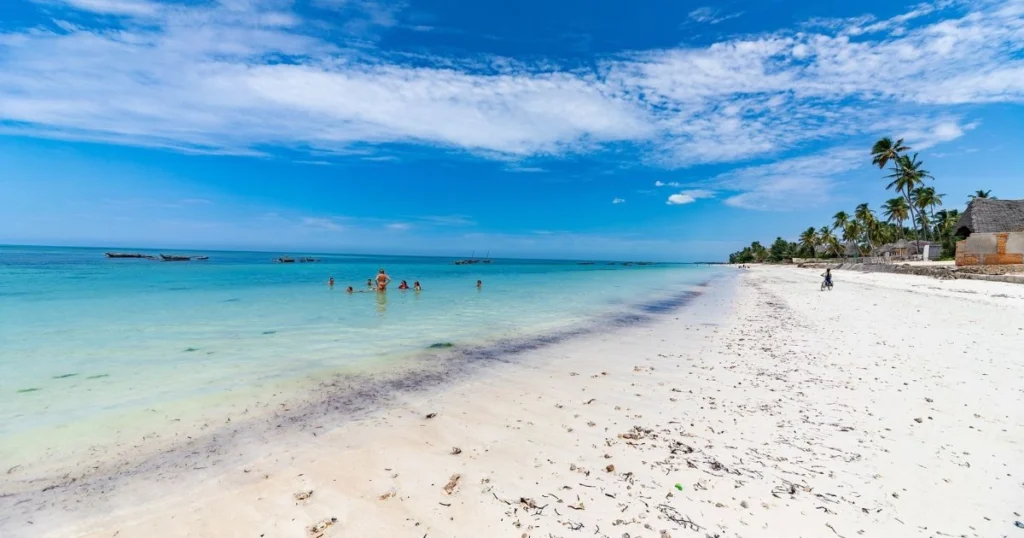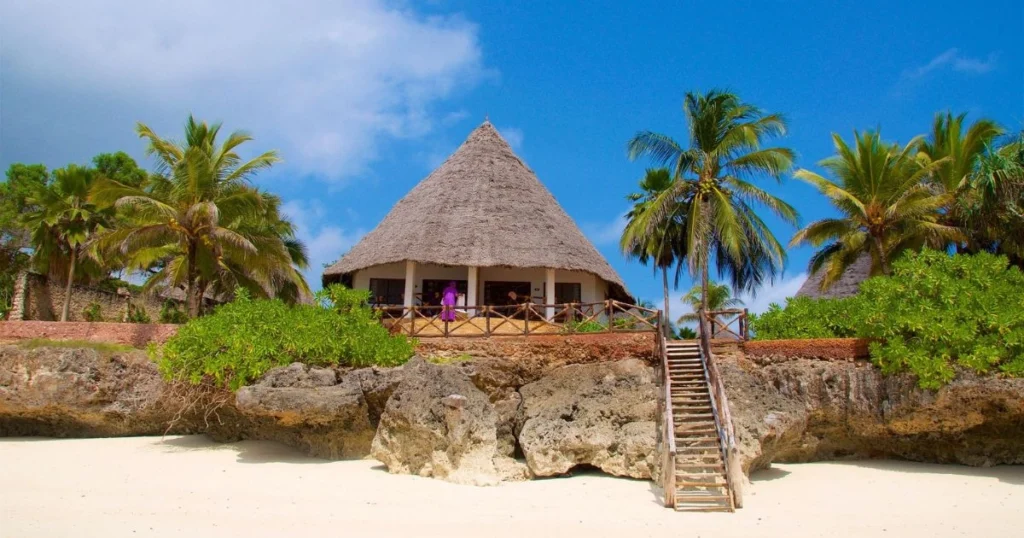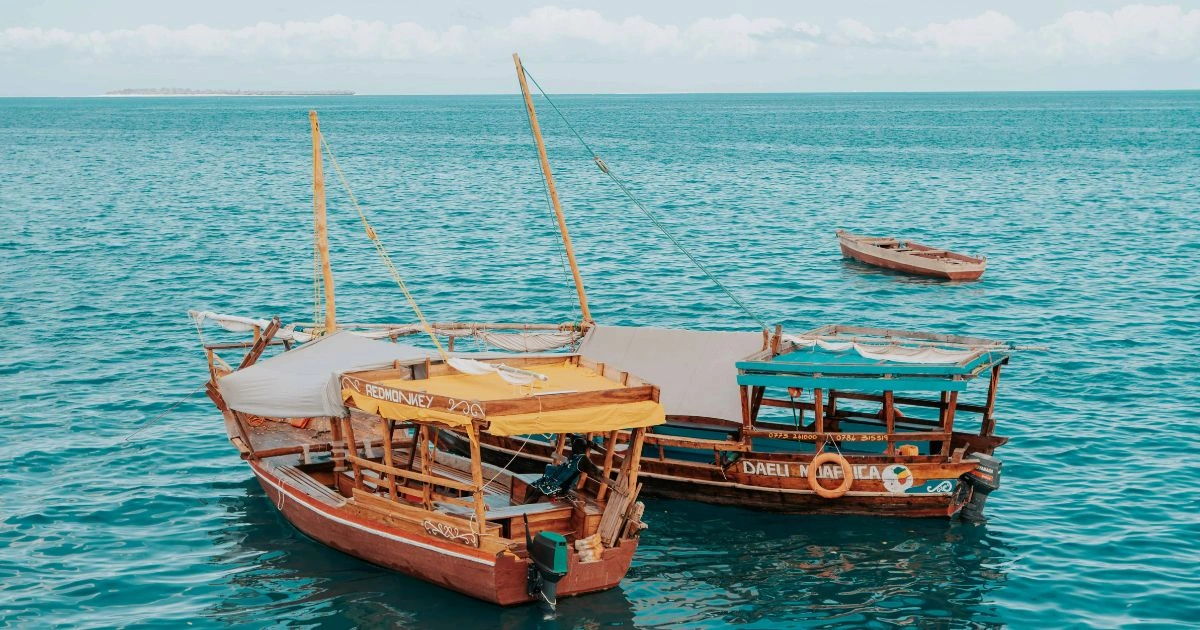Sea Turtles Zanzibar: Top 5 Best Places for Magical Sightings
There’s something truly magical about witnessing a sea turtle glide effortlessly through crystal-clear waters. In Zanzibar, this enchanting experience is not just possible but practically guaranteed if you know where to look. The pristine waters surrounding this East African archipelago have become one of the most rewarding destinations for turtle enthusiasts and marine conservation advocates alike.
Whether you’re planning your first trip to Zanzibar or returning to explore more of what this paradise has to offer, encountering sea turtles in their natural habitat will undoubtedly be a highlight of your journey. This comprehensive guide will take you through everything you need to know about sea turtles in Zanzibar – from the best viewing spots to responsible tourism practices that help protect these magnificent creatures.
Table of Contents
Why Zanzibar is Special for Sea Turtles
Zanzibar’s unique position in the Indian Ocean creates the perfect environment for sea turtles to thrive. The archipelago offers:
- Rich Feeding Grounds: The coral reefs surrounding Zanzibar provide abundant food sources for sea turtles.
- Protected Nesting Beaches: Several beaches around the islands offer safe, undisturbed nesting sites.
- Warm Waters: The consistent tropical temperatures create ideal conditions for both juvenile and adult turtles.
- Conservation Focus: Local communities and organizations have established numerous protection initiatives.
The combination of these factors makes Zanzibar not just a temporary home but a critical habitat for several endangered sea turtle species. The waters around Zanzibar serve as both feeding grounds for adult turtles and developmental habitats for juveniles, creating a diverse turtle population that visitors can observe year-round.
Species of Sea Turtles in Zanzibar
Zanzibar’s waters are home to five of the world’s seven sea turtle species, each with unique characteristics and conservation needs:
| Species | Characteristics | Conservation Status | Where to Spot |
|---|---|---|---|
| Green Turtle | Large herbivores with heart-shaped shells | Endangered | Mnemba Atoll, Nungwi |
| Hawksbill Turtle | Distinctive “hawk-like” beak, colorful shells | Critically Endangered | Coral reefs around Mnemba, Chumbe Island |
| Loggerhead Turtle | Largest hard-shelled turtle, massive heads | Vulnerable | Deeper waters, occasionally at Mnemba |
| Olive Ridley Turtle | Smallest sea turtle species in the region | Vulnerable | Rarely seen, occasionally at Kizimkazi |
| Leatherback Turtle | Largest turtle species, soft “leathery” shell | Vulnerable | Very rare, only in deeper waters |
Green and hawksbill turtles are by far the most commonly encountered species in Zanzibar, with established feeding grounds and nesting sites throughout the archipelago.
Best Places to See Sea Turtles in Zanzibar
Baraka Natural Aquarium (Nungwi)

Located in northern Zanzibar, the Baraka Natural Aquarium is essentially a natural tidal pool where rescued sea turtles are rehabilitated before being released back into the wild.
Pros:
- Guaranteed turtle sightings
- Educational opportunity to learn about conservation
- Swimming with turtles in a controlled environment
- Supports local conservation efforts
Cons:
- Semi-captive environment (though it’s a natural tidal pool)
- Can get crowded during peak tourist season
- Not the same as encountering turtles in the wild
“While the Baraka Aquarium isn’t fully wild, it serves an important purpose in rehabilitating injured turtles and educating visitors about conservation challenges.” – Local conservationist
Mnemba Atoll
This protected marine reserve is widely considered the premier spot for encountering sea turtles in their natural habitat in Zanzibar.
What makes it special:
- Crystal clear waters with visibility up to 30 meters
- Healthy coral reef ecosystem
- Regular sightings of both green and hawksbill turtles
- Opportunity to see turtles feeding naturally
Most visitors access Mnemba Atoll through snorkeling or diving tours from Nungwi or Stone Town. Early morning trips typically offer the best wildlife encounters with fewer boats around.
Nungwi Natural Aquarium
Not to be confused with Baraka Aquarium, this naturally occurring lagoon on Nungwi’s northern tip provides another opportunity to see turtles in a semi-wild setting. The aquarium was created to protect hatchlings until they’re large enough to survive in the open ocean.
Jambiani
The eastern coast of Zanzibar offers more relaxed turtle viewing opportunities. In Jambiani:
- Turtles can often be spotted during low tide
- Seagrass beds attract feeding green turtles
- Local guides can take visitors to known turtle hotspots
- Less crowded than northern locations
Lesser-Known Spots
For the adventurous traveler seeking a more private turtle encounter, consider these off-the-beaten-path locations:
- Paje Beach: During high tide, snorkelers occasionally encounter juvenile green turtles.
- Kizimkazi: Best known for dolphin tours, but the deeper waters also attract larger turtle species.
- Chumbe Island: This private marine sanctuary maintains strict visitor limits but offers pristine conditions for turtle viewing.
- Misali Island: Part of Pemba (Zanzibar’s sister island), this remote location offers exceptional turtle encounters for those willing to make the journey.
Swimming with Sea Turtles: A Responsible Guide
While swimming with sea turtles ranks high on many travelers’ bucket lists, it’s crucial to approach these encounters responsibly to protect both the animals and their habitat.
Do’s:
- Maintain a distance of at least 3 meters from turtles
- Move slowly and calmly in the water
- Use reef-safe sunscreen only
- Follow guide instructions at all times
- Use a camera without flash
Don’ts:
- Never touch or chase turtles
- Avoid blocking a turtle’s path
- Don’t feed turtles
- Never disturb nesting females or hatchlings
- Avoid standing on coral reefs
Sea turtles are protected species, and harassment can result in significant fines. More importantly, respecting these guidelines ensures these magnificent creatures will continue to thrive in Zanzibar’s waters for generations to come.
Sea Turtle Conservation Efforts in Zanzibar

Zanzibar has made remarkable progress in sea turtle conservation over the past two decades. Several organizations lead these efforts:
- Mnarani Marine Turtle Conservation Pond: Located in Nungwi, this center rescues hatchlings and injured turtles.
- Zanzibar Butterfly Centre: Beyond butterflies, they support broader conservation initiatives including turtle protection.
- Marine Cultures: Working with local communities to develop sustainable marine resource management.
- Local Beach Management Units: Community-organized groups that patrol beaches during nesting season.
Visitors can support these efforts by:
- Paying entrance fees to conservation areas and centers
- Participating in beach clean-ups (often organized by hotels)
- Reporting injured turtles or illegal activities
- Choosing eco-certified tour operators
- Making direct donations to conservation organizations
Sea Turtle Hatching Season
Witnessing baby sea turtles making their journey from nest to sea is one of nature’s most moving spectacles. In Zanzibar, nesting season primarily runs from June to September, with hatching occurring approximately 60 days after eggs are laid.
Prime hatching viewing locations include:
- Northern beaches near Nungwi
- Eastern beaches around Paje and Jambiani
- Protected areas on Mnemba Island
Many hotels and conservation centers run “turtle watches” during this season, allowing visitors to witness hatchings while ensuring the turtles’ safety.
Planning Your Trip to See Sea Turtles in Zanzibar
Best Time to Visit
While sea turtles can be seen year-round in Zanzibar, certain periods offer better viewing opportunities:
- June to October: Dry season with excellent visibility for snorkeling and diving
- February to May: Slightly warmer waters attract more feeding turtles
- August to October: Increased chance of witnessing hatching events
Recommended Tour Operators
When selecting a tour operator for turtle watching experiences, look for those with established conservation credentials:
- Colors of Zanzibar: Offers eco-friendly snorkeling tours to Mnemba Atoll
- Eco & Culture Tours: Community-based operator with strong conservation focus
- Zanzibar Watersports: Provides responsible diving trips with marine biologists
- Safari Blue: Popular day trip that includes snorkeling in turtle-rich areas
Accommodation Near Turtle-Watching Areas
| Area | Accommodation Type | Proximity to Turtles |
|---|---|---|
| Nungwi | Luxury resorts to budget guesthouses | Excellent (walking distance to Baraka Aquarium) |
| Kendwa | Mid-range hotels | Very good (boat trips to Mnemba) |
| Matemwe | Boutique lodges | Excellent (closest to Mnemba Atoll) |
| Jambiani | Eco-lodges and guesthouses | Good (seagrass beds attract turtles) |
| Stone Town | Historic hotels | Fair (day trips required) |
Safety Tips for Turtle Encounters
Beyond respecting the turtles themselves, personal safety should always be a priority:
- Check weather and tide conditions before swimming or snorkeling
- Use appropriate sun protection (reef-safe sunscreen, rashguards)
- Never swim alone – always with a buddy or guide
- Consider using a life jacket if you’re not a strong swimmer
- Be aware of currents, particularly around Mnemba Atoll
- Stay hydrated and protect against heat exhaustion
Conclusion
Zanzibar offers some of the most accessible and rewarding sea turtle encounters in the world. The combination of established conservation programs, protected marine environments, and knowledgeable local guides creates perfect conditions for responsible wildlife tourism.
As visitors, we have both the privilege of witnessing these ancient mariners in their natural habitat and the responsibility to ensure our presence doesn’t negatively impact their survival. By choosing ethical operators, respecting wildlife viewing guidelines, and supporting conservation initiatives, we can help ensure that sea turtles continue to thrive in Zanzibar’s waters.
Whether you’re floating above a feeding green turtle at Mnemba Atoll, watching hatchlings scramble toward the sea at dawn, or learning about conservation efforts at one of the island’s turtle sanctuaries, encountering sea turtles in Zanzibar will undoubtedly become a cherished memory of your East African adventure.

